|
Books Should Be Free Loyal Books Free Public Domain Audiobooks & eBook Downloads |
|
|
Books Should Be Free Loyal Books Free Public Domain Audiobooks & eBook Downloads |
|
Classics and Books from Antiquity |
|---|
Book type:
Sort by:
View by:
|
By: Marcus Aurelius (121-180) | |
|---|---|
 Meditations of the Emperor Marcus Aurelius Antoninus
Meditations of the Emperor Marcus Aurelius Antoninus
The Meditations is divided into 12 books that chronicle different periods of Marcus' life. Each book is not in chronological order and it was written for no one but himself. The style of writing that permeates the text is one that is simplified, straightforward, and perhaps reflecting Marcus' Stoic perspective on the text. Depending on the English translation, Marcus' style is not viewed as anything regal or belonging to royalty, but rather a man among other men which allows the reader to relate to his wisdom... | |
By: Marcus Fabius Quintilianus | |
|---|---|
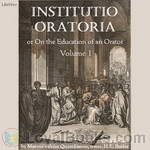 Institutio Oratoria or On the Education of an Orator, volume 1
Institutio Oratoria or On the Education of an Orator, volume 1
Marcus Fabius Quintilianus was of Spanish origin, being born about 35 A.D. at Calagurris. At Rome he met with great success as a teacher and was the first rhetorician to set up a genuine public school and to receive a salary from the State. He left behind him a treatise "On the causes of the decadence of Roman oratory" (De causis corruptae eloquentiae), some speeches and his magnum opus, the only one to survive to our days. His Institutio Oratoria, despite the fact that much of it is highly technical, has still much that is of interest today, even for those who care little for the history of rhetoric. | |
 Institutio Oratoria (On the Education of an Orator), volume 2
Institutio Oratoria (On the Education of an Orator), volume 2
Marcus Fabius Quintilianus was of Spanish origin, being born about 35 A.D. at Calagurris. At Rome he met with great success as a teacher and was the first rhetorician to set up a genuine public school and to receive a salary from the State. He left behind him a treatise "On the causes of the decadence of Roman oratory" , some speeches and his magnum opus, the only one to survive to our days. His Institutio Oratoria, despite the fact that much of it is highly technical, has still much that is of interest to‑day, even for those who care little for the history of rhetoric. This second volume covers books 4 to 6. | |
By: Marcus Minucius Felix | |
|---|---|
 Octavius
Octavius
This ancient Roman dialogue plays out as a religious debate between the Christian lawyer Octavius, and his close friend, a skeptical pagan named Caecilius. Caecilius is relatively agnostic, expressing skepticism towards both aspects of traditional Roman paganism, as well as towards his friend's newfangled Christian religion. Octavius attempts to give the reasons he has for his own beliefs and answer Caecilius' critiques. The author- Marcus Minucius Felix - plays the role of referee and observer. This is one of the earliest Latin texts to talk about Christianity, and describe how the new religion fit in the wider social context of the Roman world... | |
By: Marcus Tullius Cicero | |
|---|---|
 The Philippics
The Philippics
A philippic is a fiery, damning speech delivered to condemn a particular political actor. The term originates with Demosthenes, who delivered an attack on Philip II of Macedon in the 4th century BCE.Cicero consciously modeled his own attacks on Mark Antony, in 44 BC and 43 BC, on Demosthenes’s speeches, and if the correspondence between M. Brutus and Cicero are genuine [ad Brut. ii 3.4, ii 4.2], at least the fifth and seventh speeches were referred to as the Philippics in Cicero’s time. They were also called the Antonian Orations by Aulus Gellius... | |
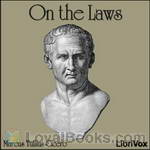 On the Laws
On the Laws
De Legibus (On the Laws) is a philosophical dialogue between: Cicero's friend Titus Pomponius Atticus; Cicero's brother Quintus; and Cicero himself. The dialogue is written in the style of Plato who was greatly revered by Cicero. De Legibus forms a continuation of Cicero's own work De re Publica (On the Commonwealth or On the Republic) and is also a response to Plato's work Νόμοι (Laws). It is unknown how many books the work originally contained but several complete books have been lost. Cicero's... | |
 On the Nature of the Gods
On the Nature of the Gods
De Natura Deorum (On the Nature of the Gods) outlines Stoic, Epicurean and Academic (Skeptical) views on religious questions. Problems discussed include: evil, the origin of the world, divination, and characteristics of God(s). | |
 Speeches Against Catilina
Speeches Against Catilina
This volume contains the four speeches delivered by Cicero in 63 BC, when he was a consul, against the conspiracy headed by L. Sergius Catilina. Catilina was scheming to bring about a general uprising in the country if he could not rise to a position of power by election. This volume includes an English introduction and notes on the speeches by E.A. Upcott.The e-text used to produce this audiobook also includes further helpful study material for Latin scholars, which has been omitted from this audio version. - Summary by Carolin | |
By: Marcus Vitruvius Pollio (75 BC - c. 15 BC) | |
|---|---|
 Ten Books on Architecture
Ten Books on Architecture
On Architecture is a treatise on architecture written by the Roman architect Vitruvius and dedicated to his patron, the emperor Caesar Augustus as a guide for building projects. The work is one of the most important sources of modern knowledge of Roman building methods as well as the planning and design of structures, both large (aqueducts, buildings, baths, harbours) and small (machines, measuring devices, instruments). He is also the prime source of the famous story of Archimedes and his bath-time discovery. | |
By: Nathaniel Hawthorne (1804-1864) | |
|---|---|
 Tanglewood Tales
Tanglewood Tales
A sequel to Nathaniel Hawthorne's earlier volume of Greek mythology interpreted and retold for young people, Tanglewood Tales includes more legends and tales of ancient heroes and monsters. In his earlier book, A Wonder-Book for Girls and Boys, Hawthorne had designed the book to be a book within a book. A young college student keeps a group of young children entertained by retelling Greek myths in a way in which they can easily understand. Nathaniel Hawthorne also wrote a brief introduction to Tanglewood Tales, entitled The Wayside... | |
By: Omar Khayyám (1048-1131) | |
|---|---|
 Quatrains of Omar Khayyam of Nishapur
Quatrains of Omar Khayyam of Nishapur
In 1906, Eben Francis Thompson,scholar and poet, published a limited edition of his translation of the Quatrains of Omar Khayyam. This edition contains 878 quatrains, and represents the most extensive translation of Omar's rubai in any language.In the Introduction, Nathan Haskell Dole writes: Mr Thompson has put into English verse this whole body of Persian poetry. It is a marvel of close translation, accurate and satisfactory. He has succeeded in doing exactly what he set out to do - to add nothing and to take nothing away, but to put into the typical quatrain, as determined by Fitzgerald and others, exactly what Omar and his unknown imitators said. | |
 Rubáiyát of Omar Khayyám (Le Gallienne) - Version 2
Rubáiyát of Omar Khayyám (Le Gallienne) - Version 2
One of the greatest works of poetry in history, this lyric poem presents the deep feelings and emotions of the poet on subjects such as life, death, love, God and destiny. | |
By: Padraic Colum (1881-1972) | |
|---|---|
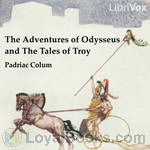 The Adventures of Odysseus and the Tale of Troy
The Adventures of Odysseus and the Tale of Troy
Also known as “The Children’s Homer,” this is Irish writer Padraic Colum’s retelling of the events of Homer’s Iliad and Odyssey for young people. Colum’s rich, evocative prose narrates the travails of Odysseus, King of Ithaca: his experiences fighting the Trojan War, and his ten years’ journey home to his faithful wife Penelope and his son Telemachus. | |
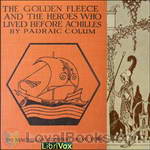 The Golden Fleece and the Heroes Who Lived Before Achilles
The Golden Fleece and the Heroes Who Lived Before Achilles
This is Irish folklorist Padraic Colum's masterful retelling of many Greek myths, focusing on Jason and the Argonauts' quest to find the Golden Fleece. He also includes the stories of Atalanta, Heracles, Perseus, Theseus, and others. | |
By: Phaedrus (c. 15 BC - c. AD 50) | |
|---|---|
 The Fables of Phaedrus
The Fables of Phaedrus
The fable is a small narrative, in prose or verse, which has as its main characteristic the aim of conveying a moral lesson (the “moral”), implicitly or, more normally, explicitly expressed. Even though the modern concept of fable is that it should have animals or inanimated objects as characters – an idea supported by the works of famous fabulists such as Aesop and La Fontaine – Phaedrus, the most important Latin fabulist, is innovative in his writing. Although many of his fables do depict animals or objects assuming speech, he also has many short stories about men, writing narratives that seem to the modern eye more like short tales than fables... | |
By: Plato (427-347) | |
|---|---|
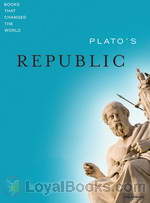 Plato's Republic
Plato's Republic
Plato's Republic is a Socratic dialogue which deals mainly with the definition of justice, the characteristics of a just city state and the just man. Although it was written more than two thousand years ago, many of the ideas and thoughts expounded here are still very much relevant to modern society. This is Plato's best known work and is also considered his most influential especially when it comes to the fields of philosophy and political theory. The Republic is divided into ten books and in each book Socrates discusses different topics from the immortality of the soul to the meaning of justice with his disciples like Glaucon, Thrasymachus, Adeimantus and others... | |
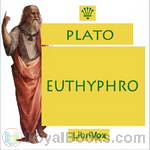 Euthyphro
Euthyphro
Awaiting his trial on charges of impiety and heresy, Socrates encounters Euthyphro, a self-proclaimed authority on matters of piety and the will of the gods. Socrates, desiring instruction in these matters, converses with Euthyphro, but as usual, the man who professes to know nothing fares better than the man who claims to be an expert. One of Plato’s well-known Socratic Dialogues, Euthyphro probes the nature of piety, and notably poses the so-called Euthyphro Dilemma: Do the gods love a thing because it is holy, or is a thing holy because it is loved by the gods? | |
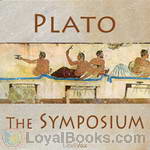 The Symposium
The Symposium
The Symposium (Ancient Greek: Συμπόσιον) is a philosophical book written by Plato sometime after 385 BCE. On one level the book deals with the genealogy, nature and purpose of love, on another level the book deals with the topic of knowledge, specifically how does one know what one knows. The topic of love is taken up in the form of a group of speeches, given by a group of men at a symposium or a wine drinking party at the house of the tragedian Agathon at Athens. Plato constructed the Symposium as a story within a story within a story... | |
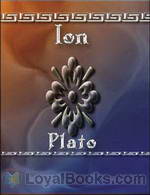 Ion
Ion
In Plato’s Ion, Socrates questions Ion on whether he should really claim laud and glory for his ‘rhapsodic’ recitals of Homer’s poetry. | |
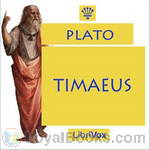 Timaeus
Timaeus
“Our intention is, that Timaeus, who is the most of an astronomer amongst us, and has made the nature of the universe his special study, should speak first, beginning with the generation of the world and going down to the creation of man…” ‘Timaeus’ is usually regarded as one of Plato’s later dialogues, and provides an account of the creation of the universe, with physical, metaphysical and ethical dimensions, which had great influence over philosophers for centuries following. It attributes the order and beauty of the universe to a benevolent demiurge – a ‘craftsman’ or god – fashioning the physical world after the pattern of an ideal, eternal one... | |
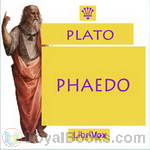 Phaedo
Phaedo
Plato's Phaedo is one of the great dialogues of his middle period, along with the Republic and the Symposium. The Phaedo, which depicts the death of Socrates, is also Plato's seventh and last dialogue to detail the philosopher's final days (the first six being Theaetetus, Euthyphro, Sophist, Statesman, Apology, and Crito).In the dialogue, Socrates discusses the nature of the afterlife on his last day before being executed by drinking hemlock. Socrates has been imprisoned and sentenced to death by an Athenian jury for not believing in the gods of the state and for corrupting the youth of the city... | |
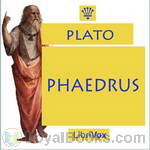 Phaedrus
Phaedrus
“For there is no light of justice or temperance, or any of the higher ideas which are precious to souls, in the earthly copies of them: they are seen through a glass, dimly…”Socrates and his earnest friend Phaedrus, enjoying the Athenian equivalent of a lunchtime stroll in the park, exchange views on love and on the power of words, spoken and written.Phaedrus is the most enchanting of Plato’s Erotic dialogues (capitalised in honour of the god). The barefoot philosopher urges an eager young... | |
 Apology
Apology
The Apology of Socrates is Plato's version of the speech given by Socrates as he unsuccessfully defended himself in 399 BC against the charges of "corrupting the young, and by not believing in the gods in whom the city believes, but in other daimonia that are novel" (24b). "Apology" here has its earlier meaning (now usually expressed by the word "apologia") of speaking in defense of a cause or of one's beliefs or actions (from the Ancient Greek ἀπολογία). | |
 Meno
Meno
Meno (Ancient Greek: Μένων) is a Socratic dialogue written by Plato. Written in the Socratic dialectic style, it attempts to determine the definition of virtue, or arete, meaning in this case virtue in general, rather than particular virtues, such as justice or temperance. The goal is a common definition that applies equally to all particular virtues. Socrates moves the discussion past the philosophical confusion, or aporia, created by Meno's paradox (aka the learner's paradox) with the introduction of new Platonic ideas: the theory of knowledge as recollection, anamnesis, and in the final lines a movement towards Platonic idealism.. (Introduction by Wikipedia) | |
 Laws
Laws
Νόμοι (Laws) is Plato's final dialogue written after his attempt to advise the tyrant Dionysius II of Syracuse. The dialogue takes place between: an Athenian Stranger (Socrates? A god in human form?); the quiet Lacedaemonian Megillus; and the Cretan Cleinias. The Stranger asks whether humans live to be more effective at waging war or if there is something more important a legislator should seek to achieve. During their pilgrimage Cleinias discloses his role in the establishment of a new colony... | |
By: Pliny the Elder | |
|---|---|
 The Natural History
The Natural History
"Naturalis Historia" (Latin for "Natural History") is an encyclopedia published circa AD 77-79 by Pliny the Elder. It is one of the largest single works to have survived from the Roman empire to the modern day and purports to cover the entire field of ancient knowledge, based on the best authorities available to Pliny. The work became a model for all later encyclopedias in terms of the breadth of subject matter examined, the need to reference original authors, and a comprehensive index list of the contents... | |
 The Natural History, volume 2
The Natural History, volume 2
Naturalis Historia (Latin for "Natural History") is an encyclopedia published circa AD 77-79 by Pliny the Elder. It is one of the largest single works to have survived from the Roman empire to the modern day and purports to cover the entire field of ancient knowledge, based on the best authorities available to Pliny. The work became a model for all later encyclopedias in terms of the breadth of subject matter examined, the need to reference original authors, and a comprehensive index list of the contents... | |
 Natural History Volume 5
Natural History Volume 5
Naturalis Historia is an encyclopedia published circa AD 77-79 by Pliny the Elder. It is one of the largest single works to have survived from the Roman empire to the modern day and purports to cover the entire field of ancient knowledge, based on the best authorities available to Pliny. The work became a model for all later encyclopedias in terms of the breadth of subject matter examined, the need to reference original authors, and a comprehensive index list of the contents. The scheme of his great work is vast and comprehensive, being nothing short of an encyclopedia of learning and of art so far as they are connected with nature or draw their materials from nature... | |
 Boys' and Girls' Pliny Vol. 1
Boys' and Girls' Pliny Vol. 1
The Natural History of Pliny the Elder is one of the largest single works to have survived from the Roman Empire. The full work consists of 37 books, covering more than 20.000 topics ranging from astronomy and mathematics to botany and precious stones. The book became a model for later encyclopaedias and gives a fascinating overview of the state of scientific knowledge almost 2000 years ago. This version of the Natural History has been adapted for a younger audience. This first volume contains Book I and Book II out of a total of 9 books. | |
 Natural History Volume 6
Natural History Volume 6
Naturalis Historia is an encyclopedia published circa AD 77-79 by Pliny the Elder. It is one of the largest single works to have survived from the Roman empire to the modern day and purports to cover the entire field of ancient knowledge, based on the best authorities available to Pliny. The work became a model for all later encyclopedias in terms of the breadth of subject matter examined, the need to reference original authors, and a comprehensive index list of the contents. The scheme of his great work is vast and comprehensive, being nothing short of an encyclopedia of learning and of art so far as they are connected with nature or draw their materials from nature... | |
 Natural History Volume 7
Natural History Volume 7
Naturalis Historia is an encyclopedia published circa AD 77-79 by Pliny the Elder. It is one of the largest single works to have survived from the Roman empire to the modern day and purports to cover the entire field of ancient knowledge, based on the best authorities available to Pliny. The work became a model for all later encyclopedias in terms of the breadth of subject matter examined, the need to reference original authors, and a comprehensive index list of the contents. The scheme of his great work is vast and comprehensive, being nothing short of an encyclopedia of learning and of art so far as they are connected with nature or draw their materials from nature... | |
By: Plotinus (204-270) | |
|---|---|
 Enneads
Enneads
The six Enneads are the collected writings of the Neoplatonic philosopher Plotinus arranged by his student Porphyry into fifty-four books with each Ennead containing nine. The translator Kenneth Sylvan Guthrie arranged these books chronologically rather than according to Porphyry's numeration. This recording is organized according to Porphyry's numeration with Roman numerals indicating the Ennead and Hindu-Arabic numerals indicating the book e.g. VI.9 would be the ninth book of the sixth Ennead. A hyperlinked table of contents at Volume 1 Page 3 of the gutenberg.org text will enable you to jump to the specific Ennead if you wish to read along with the recording. | |
By: Proclus (412-485) | |
|---|---|
 Six Books of Proclus, the Platonic Successor, on the Theology of Plato
Six Books of Proclus, the Platonic Successor, on the Theology of Plato
The Six books of Proclus, the Platonic successor, on The Theology of Plato to which a Seventh book is added by the translator, Thomas Taylor, in order to supply the deficiency of another book on this subject, which was written by Proclus, but since lost. According to the 1995 Prometheus Trust edition Book 3 Chapter 1 of this translation contains Chapters 1-4 from the original Greek, Chapter 2 contains the Greek chapters 5-6 and Chapter 3 contains the Greek Chapters 7-8. Thereafter, the translated and Greek chapters match beginning at Chapter 9... | |
By: Publius Cornelius Tacitus | |
|---|---|
 A Dialogue Concerning Oratory, or the Causes of Corrupt Eloquence
A Dialogue Concerning Oratory, or the Causes of Corrupt Eloquence
The scene of the Dialogus de Oratoribus, as this work is commonly known, is laid in the sixth year of Vespasian, 75 a.D. The commentators are much divided in their opinions about the real author; his work they all agree is a masterpiece in the kind; written with taste and judgement; entertaining, profound, and elegant. It is normally considered to have been written by Tacitus, even though some ascribe it to Quintilian. The main subject is the decadence of oratory, for which the cause is said to be the decline of the education, both in the family and in the school, of the future orator. In a certain way, it can be considered a miniature art of rhetoric. | |
By: Publius Ovidius Naso | |
|---|---|
 Metamorphoses
Metamorphoses
The Metamorphoses of Ovid is probably one of the best known, certainly one of the most influential works of the Ancient world. It consists of a narrative poem in fifteen books that describes the creation and history of the world through mythological tales, starting with a cosmogony and finishing with the deification of Julius Caesar. Published around 8 AD, the Metamorphoses are a source, sometimes the only source, for many of the most famous ancient myths, such as the stories of Daedalus and Icarus, Arachne or Narcisus... | |
 Heroides
Heroides
The Heroides, also known as the Heroines, the Letters of the Heroines or simply as Epistles are a very famous collection of poems by Ovid, not only for their interesting subject – letters by famous mythological characters addressed to their beloved ones – but also because it’s considered by some the first example of the Epistle as a literary genre – a statement made by Ovid himself in his Ars Amatoria. The book as we have it nowadays consists of 21 letters, divided in two parts. The first... | |
By: Publius Vergilius Maro (70 BC - 19 AD) | |
|---|---|
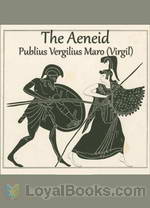 The Aeneid
The Aeneid
The Aeneid is a Latin epic written by Virgil in the 1st century BC that tells the legendary story of Aeneas, a Trojan who traveled to Italy, where he became the ancestor of the Romans. The first six of the poem’s twelve books tell the story of Aeneas’ wanderings from Troy to Italy, and the poem’s second half treats the Trojans’ ultimately victorious war upon the Latins, under whose name Aeneas and his Trojan followers are destined to be subsumed. The poem was commissioned from Vergil by the Emperor Augustus to glorify Rome... | |
 The Eclogues
The Eclogues
This book of poems, written between 42 en 39 BC, was a bestseller in ancient Rome, and still holds a fascination today. Held to be divinely inspired not only by the Romans themselves, but by the Medieval Catholic church, The Eclogues is one of the most beloved collections of Latin short poetry. | |
By: Saint Augustine of Hippo (354-430) | |
|---|---|
 On Christian Doctrine
On Christian Doctrine
De doctrina Christiana, On Christian Doctrine, is a famous treatise by Augustine of Hippo, consisting of four books that describe how to interpret and teach the Scriptures. The first three books, published in 397, set three tasks for Christian teachers and preachers: to discover the truth in the contents of the Scriptures, to teach the truth from the Scriptures, and to defend scriptural truth when it was attacked. It is believed that the last part of book three and the totality of book four were added much later, in 426. The fourth book is especially quoted for being the first treatment of the relation between Christianity and Ancient Rhetoric. Summary by Leni. | |
By: Sextus Julius Frontinus (40-103) | |
|---|---|
 Stratagems and The Aqueducts of Rome
Stratagems and The Aqueducts of Rome
Frontinus' Stratagems is a collection of examples of military stratagems from Greek and Roman history, which the author comments based on his own experience as a general in Germania. Many of the stories he tells can also be found in other Roman authors like Valerius Maximus and Livy. His most famous work however is De aquaeductu, The Aqueducts of Rome, an official report to the emperor on the state of the aqueducts of Rome, in two books. It presents a history and description of all the nine aqueducts that provided the water-supply of Rome in the first century, as well as information about the laws relating to its use and maintenance, and the quality of water delivered by each. | |
By: Sir Edwin Arnold (1832-1904) | |
|---|---|
 Book of Good Counsels - From the Sanskrit of the "Hitopadesa"
Book of Good Counsels - From the Sanskrit of the "Hitopadesa"
The term ‘Hitopadesha’ is a combination of two Sanskrit terms, ‘Hita’ (welfare/ benefit) and ‘Upadesha’ (counsel). As the term suggests, The Hitopadesha is a collection of tales that gives good counsel. Hitopadesa was presumably written by Narayan Pandit and is an independent treatment of the Vishnu Sarman's Panchatantra (3rd century BC) which it resembles in form. In Hitopadesha, Vishnu Sarman is depicted as a Sage who undertakes to give good counsel to the sons of Sudarsana, the king of Pataliputra, through stories within stories involving talking animals... | |
By: Sophocles (495-406 BC) | |
|---|---|
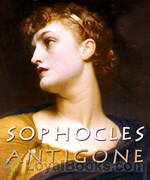 Antigone
Antigone
This is the final installment in Sophocles's Theban Plays, following Oedipus Rex and Oedipus at Colonus. Oedipus's daughter Antigone deliberately breaks the laws of Thebes when she buries her brother's body and is sentenced to death. She clashes with Creon, the King of Thebes, over what constitutes justice and morality: the laws of the state or the laws of the individual. | |
 Electra
Electra
Sophocles' play dramatizes the aftermath of Agamemnon's murder by his wife Clytemnestra and her lover Aegisthus. His daughter Electra is hungry for revenge and longs for the return of her brother Orestes to help her achieve her ends. | |
By: Thomas Hodgkin (1831-1913) | |
|---|---|
 Theodoric the Goth
Theodoric the Goth
Theodoric the Great (~454-526) was king of the Ostrogoths during the time of the terminal decline of the Western Roman Empire. After wandering with his people through the Balkans, at times allied with the Eastern Empire, and at others, its enemy, he was invited by the Emperor Zeno to invade and conquer Italy on behalf of the Empire. He defeated the Germanic king Odovacar, who had himself deposed the last Emperor of the West, and established the Ostrogothic Kingdom in Italy. He became known as "King of the Goths and Romans in Italy", ruling according to the principle of civilitas. His reign was a time of stability and prosperity. ( Patrick Eaton) | |
By: Titus Livius (c55BC - c17AD) | |
|---|---|
 From the Foundation of the City
From the Foundation of the City
Ab urbe condita, is a monumental history of ancient Rome written in the Latin language by Titus Livius(Livy), an ancient Roman historian. The work covers the time from the stories of Aeneas, the earliest legendary period from before the city's founding in c. 753 BC, to Livy's own times in the reign of the emperor, Augustus. The last year covered by Livy is 745 AUC, or 9 BC, the death of Drusus. About 25% of the work survives.Livy's History of Rome was in demand from the publication of the first packet... | |
 History of Rome, volume 1
History of Rome, volume 1
The History of Rome is a history of ancient Rome, written in Latin by Livy between 27 and 9 BC, covering the period from the supposed arrival of Aeneas and the Trojansall the way to the time of Augustus, finishing with the death of Drusus, contemporary to Livy himself. Only 35 of the 142 books written by the author arrived to our times. This translation, by the Rev Canon William Masfen Roberts, was published in six volumes as part of the Everyman's Library Collection. - Summary by Leni | |
By: Titus Lucretius Carus (94? BC - 49? BC) | |
|---|---|
 On the Nature of Things
On the Nature of Things
Written in the first century b.C., On the Nature of Things (in Latin, "De Rerum Natura") is a poem in six books that aims at explaining the Epicurean philosophy to the Roman audience. Among digressions about the importance of philosophy in men's life and praises of Epicurus, Lucretius created a solid treatise on the atomic theory, the falseness of religion and many kinds of natural phenomena. With no harm to his philosophical scope, the author composed a didactic poem of epic flavor, of which the imagery and style are highly praised. | |
By: Titus Maccius Plautus (254 BCE-184 BCE) | |
|---|---|
 Pseudolus: or, The Cheat
Pseudolus: or, The Cheat
About two dozen comedies of the Roman playwright Plautus have survived the years, with many of them ending up rewritten and recast by other playwrights such as Moliere. This one, Pseudolus, was part of the source for A Funny Thing Happened on the Way to the Forum. - Summary by ToddHW Cast list: Simo, an old gentleman of Athens: ToddHW Calidorus, his son, in love with Phoenicium: Tomas Peter Charinus, the friend of Calidorus: Adam Bielka Callipho, the friend of Simo: Alan Mapstone Pseudolus, the servant... | |
 Trinummus: The Three Pieces of Money
Trinummus: The Three Pieces of Money
Buried treasure, reckless son, exile, young love, betrayal, detection - all as relevant today as when this comedy was written 2200 years ago. - Summary by ToddHW Cast list: Luxury: Sonia Poverty: Availle Charmides, an Athenian merchant: ToddHW Lesbonicus, the son of Charmides: Rémi Callicles, a friend of Charmides: Mike Manolakes Megaronides, a friend of Callicles: David Purdy Stasimus, the servant of Charmides and Lesbonicus: Adrian Stephens Philto, a wealthy Athenian: Algy Pug Lysiteles, the son of Philto, and a friend of Lesbonicus: VocalPenguin A Sharper: Alan Mapstone Stage Directions: Wayne Cooke Editing: ToddHW | |
 Bacchides: or, The Twin Sisters
Bacchides: or, The Twin Sisters
Twin sisters, separated at birth to different lands. Later, Mnesilochus falls in love with one of them, only to see his friend Pistoclerus apparently with her. Great complications abound. Eventually all is explained and everyone joins together to carouse. - Summary by ToddHW Cast list: Silenus, the Divinity, who speaks the Prologue: ToddHW Nicobulus, an aged citizen of Athens: Adrian Stephens Mnesilochus, his son: Greg Giordano Philoxenus, another aged citizen of Athens: Alan Mapstone Pistoclerus,... | |
 Stichus; or, The Parasite Rebuffed
Stichus; or, The Parasite Rebuffed
"Antipho, a wealthy and jovial old gentleman of Athens, has two daughters, Pilumena and Pamphila. They are married to two brothers, Epignomus and Pamphilus, who, having run through their property in the company of idlers and Parasites, have, with the view of retrieving their fortunes, taken to merchandize [overseas trade]." The brothers have, in fact, been gone so long trying to regain their riches that Antipho is getting ready to marry off the daughters again. Will the brothers arrive back in time... | |
 Menaechmi; or, The Twin Brothers
Menaechmi; or, The Twin Brothers
Menaechimus was carried away as a child to Epidamnus. Years later his twin-brother arrives also in Epidamnus, where because of his resemblance to his brother, he is mistaken for him by everybody. "This play was the foundation of Shakespeare's Comedy of Errors." - Summary by ToddHW and Translator Cast list: Menaechimus of Epidamnus: Greg Giordano Menaechimus Sosicles, his twin-brother: Wayne Cooke Peniculus, a Parasite: Alan Mapstone Messenio, the servant of Menaechimus Sosicles: Rémi Cylindrus,... | |
By: Unknown | |
|---|---|
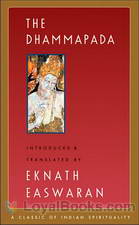 The Dhammapada
The Dhammapada
The Dhammapada is is a Buddhist scripture, containing 423 verses in 26 categories. According to tradition, these are verses spoken by the Buddha on various occasions, most of which deal with ethics. It is is considered one of the most important pieces of Theravada literature. Despite this, the Dhammapada is read by many Mahayana Buddhists and remains a very popular text across all schools of Buddhism. – Excerpted from Wikipedia | |
 Theaetetus
Theaetetus
Theaetetus (Ancient Greek: Θεαίτητος) discusses concepts including perception, true judgment and knowledge. Socrates compares the human mind to a piece of wax and is critical of lawyers who seek only to persuade. | |
 Parmenides
Parmenides
Parmenides (Ancient Greek: ΠΑΡΜΕΝΙΔΗΣ) recounts a meeting between Socrates, Zeno and Parmenides. Topics discussed include universals, plurality and the One. | |
 Statesman
Statesman
Statesman (Ancient Greek: Πολιτικός) discusses God's role in maintaining the universe and describes the statesman as a good shepherd who promotes intermarriage between the orderly and courageous. | |
 Sophist
Sophist
Sophist (Ancient Greek: Σοφιστής) discusses being and not-being while drawing a distinction between the philosopher and the sophist. | |
 Cratylus
Cratylus
Cratylus (ΚΡΑΤΥΛΟΣ) discusses whether things have names by mere convention or have true names which can only be correctly applied to the object named and may have originated from God. | |
 Charmides
Charmides
Charmides (Χαρμίδης) discusses the virtue of temperance. | |
 Laches
Laches
Laches (Λάχης) discusses examples of courage including weapons masters, soldiers who stand firm in battle, ferocious animals and the wise person who endures evils. | |
 Philebus
Philebus
Philebus (ΦΙΛΗΒΟΣ) discusses pleasure, wisdom, soul and God. | |
 Lysis
Lysis
Lysis (Λύσις) discusses friendship and love between the good and bad. | |
 Menexenus
Menexenus
Menexenus (ΜΕΝΕΞΕΝΟΣ) is thought to have been written by Plato (ΠΛΑΤΩΝ). The dialogue consists of Socrates (ΣΩΚΡΑΤΗΣ) recounting a funeral oration he claims to have learned from the female philosopher Aspasia (ΑΣΠΑΣΙΑ) who may have been wealthy, a courtesan or both. | |
 Euthydemus
Euthydemus
Euthydemus (Εὐθύδημος) and Dionysodorus the sophists discuss the meaning of words with Socrates. | |
 Eryxias
Eryxias
Eryxias (ΕΡΥΞΙΑΣ) may not have been written by Plato (ΠΛΑΤΩΝ). The dialogue discusses whether wealth has value and what the aim of philosophy should be. | |
By: Valmiki | |
|---|---|
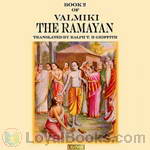 The Ramayana Book 2
The Ramayana Book 2
The Ramayana is an ancient Sanskrit epic. It is attributed to the Hindu sage Valmiki and forms an important part of the Hindu canon (smṛti). The Ramayana is one of the two great epics of India, the other being Mahabharata. It is the story of Rama, who emabrks on an epic journey followed by the fight with Ravana, the demon king who abducted Rama's wife, Sita. The epic depicts the duties of relationships, portraying ideal characters like the ideal servant, the ideal brother, the ideal wife and the ideal king. (Introduction by Om123) | |
By: Various | |
|---|---|
 Junior Classics Volume 3: Tales from Greece and Rome
Junior Classics Volume 3: Tales from Greece and Rome
The purpose of The Junior Classics is to provide, in ten volumes containing about five thousand pages, a classified collection of tales, stories, and poems, both ancient and modern, suitable for boys and girls of from six to sixteen years of age. This collection consists of Volume 3, including many tales from Homer and Virgil among others. - Summary by William Patten | |
By: Virgil (70 BCE-19 BCE) | |
|---|---|
 Georgics
Georgics
Virgil's Georgics are the second of the three major poetic works ascribed to the poet. It was published probably around 29 BC and, as the name suggests, the subject of the poem is agriculture. Divided into four books, it is also the shortest of Virgil's main poetry, with only 2188 hexametric verses. The poem draws on a variety of prior sources and has influenced many later authors from antiquity to the present. - Summary by Leni | |
By: Walt Whitman (1819-1892) | |
|---|---|
 Leaves of Grass
Leaves of Grass
Nearly 160 years after it was first published, Walt Whitman's Leaves of Grass continues to inspire, enthrall and educate generations of readers. This collection of poems serves as a vehicle for Whitman's philosophy, ideals, love of nature and mystical musings and it subsequently became one of the corner stones of American literature. Whitman was inspired to write Leaves of Grass based on Ralph Waldo Emerson's clarion call for a truly American poet who would tell of its glories, virtues and vices... | |
By: Wilhelm Ihne (1821-1902) | |
|---|---|
 Early Rome, from the Foundation of the City to its Destruction by the Gauls
Early Rome, from the Foundation of the City to its Destruction by the Gauls
In this short scholarly work the German historian, Wilhelm Ihne, elucidates what is known or can be deduced about Rome's early history, from the time of its legendary founders and kings, through the establishment of the Republic, to the invasion of the Gauls in 390 B.C. Ihne writes that "No great state known to history can be traced to such a small beginning as Rome." This book shows how the slow evolution of Rome's political institutions, through class conflict and compromise, created a state which, despite few natural advantages, was destined to rule the world. | |
By: William Gershom Collingwood (1854-1932) | |
|---|---|
 Coniston Tales
Coniston Tales
A selection of poems and short prose pieces grounded in the landscape, history and legends of Coniston in the English Lake District. W. G. Collingwood gave up a promising academic career as a young Oxford graduate to become John Ruskin's personal secretary, living at first in his home, Brantwood, at Coniston. In the spirit of self-sufficiency that typified their community, Collingwood first published these pieces in 'Nothing Much', a faimily magazine edited by his young children and circulated to friends by private subscription. - Summary by Phil Benson | |
By: William Henry Samuel Jones (1876-1963) | |
|---|---|
 Malaria: A Neglected Factor in the History of Greece and Rome
Malaria: A Neglected Factor in the History of Greece and Rome
This short book has the objective of showing how important it is to stamp out malaria as soon as possible. Unlike a plague that suddenly takes it victims and leaves its survivors, malaria is a debilitating infection. It seizes all, fit and unfit alike, gradually lessening the general vitality until, in some cases, it has exterminated the people among whom it has become endemic. Extensive evidence has been compiled and summarised from consultation with medical authorities, antique literature, and historical sources to show how this insidious disease has undermined the integrity of a pair of ancient empires, and ultimately became a factor in their downfall. - Summary by Leon Harvey | |
 Malaria in Greek History
Malaria in Greek History
This book is an attempt to correct and develop the theory proposed tentatively in the little work Malaria. Put briefly, this theory is as follows. In the struggle for existence man has competed, not only with his fellow-men, but also with wild animals and disease- parasites. The fight against beasts was decided long before the historic period, but parasites have always been, and still are, formidable opponents. Whole tribes have been wiped out by plague, kala-azar and measles; and even when the disease-parasite does not win such a decisive victory, it often weakens a nation so much that the latter falls an easy victim to its healthier neighbours... | |
By: William Jennings Bryan (1860-1925) | |
|---|---|
 World's Famous Orations, Vol. I: Greece
World's Famous Orations, Vol. I: Greece
This is the first volume in the ten volume collection of the world's most famous orations, as compiled by William Jennings Bryant and Francis Whiting Halsey. The first volume concerns ancient Greece, and contains such famous persons as Achilles, Pericles, and Socrates, with their most famous orations and speeches. - Summary by Carolin | |
 World’s Famous Orations, Vol. II: Rome
World’s Famous Orations, Vol. II: Rome
In 1906, William Jennings Bryan, himself a famous American orator, and Francis Whiting Halsey compiled a series of the most famous orations of all time. They are ordered by both geographic area and time period, ranging from Ancient Greece to their contemporary United States. This is the second volume in this series, in which the most famous speeches of great Roman statesmen are collected, including Cicero, Seneca, and Julius Caesar. - Summary by Carolin | |
By: William Matthew Flinders Petrie (1853-1942) | |
|---|---|
 Egyptian Tales, translated from the Papyri, Series Two : XVIIIth to XIXth Dynasty
Egyptian Tales, translated from the Papyri, Series Two : XVIIIth to XIXth Dynasty
Egyptian stories translated from ancient, often incomplete, documents. - Summary by Timothy Ferguson | |
By: William Richard Ward Stephens (1839-1902) | |
|---|---|
 Hildebrand and his Times
Hildebrand and his Times
W.R.W. Stephens, the Anglican Dean of Winchester, writes a short, lively biography of the great church reformer, Hildebrand of Sovana , afterwards Pope Gregory VII, setting his life within the larger context of the struggle for dominance between the Holy Roman Empire and the Papacy during the Middle Ages. The roots of the conflict can be traced to the alliance made between Pope Stephen II and his successors and the Frankish King Pippin and his son Charlemagne to break the power of the Lombard Kingdom in Italy... | |
By: William Stukeley (1687-1765) | |
|---|---|
 Stonehenge, a Temple Restor'd to the British Druids
Stonehenge, a Temple Restor'd to the British Druids
Stonehenge in Wiltshire, England never fails to amaze and fascinate; and has been the subject of speculation, research and investigation for centuries. This is an early look at this enigmatic location. As the author says in the preface: "A few years ago I spent some time every summer in viewing, measuring, and considering the works of the ancient Druids in our Island; I mean those remarkable circles of Stones which we find all over the kingdom, many of which I have seen, but of many more I have had accounts... | |
By: William Wolfe Capes (1834-1914) | |
|---|---|
 Roman History: The Early Empire, from the Assassination of Julius Caesar to that of Domitian
Roman History: The Early Empire, from the Assassination of Julius Caesar to that of Domitian
William Wolfe Capes was an Anglican cleric, a classicist, and a historian. This is his short chronicle of the early Roman Empire, from the aftermath of the murder of Julius Caesar in 44 B.C.E. to the assassination of the tyrannical Domitian in 96 C.E.. Capes writes about the intervening emperors, including the notorious Caligula and Nero, and then devotes chapters to Roman citizenship, life in the provinces, trade, religion, the frontiers, and the army. | |
 Roman Empire of the Second Century: Or, The Age of the Antonines
Roman Empire of the Second Century: Or, The Age of the Antonines
This short overview of the Roman Empire from AD 96-180 opens as the murderers of Domitian raise to power the wise old senator, Nerva. Ignoring assassination rumors, his successor, the brave soldier Trajan, "went about the streets almost unguarded" and was easy of access to all classes. He was followed by the brilliant, gay emperor, Hadrian, who "revised the imperial budget with the skill of a trained accountant." We meet the immortal Marcus Aurelius, the philosopher-emperor who spent his life fighting barbarians along the Danube. The book closes with chapters on the religions of the empire, on the state's response to Christianity, and on imperial administration. | |
By: Xenophon | |
|---|---|
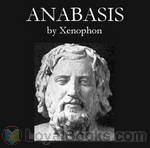 Xenophon's Anabasis
Xenophon's Anabasis
Xenophon the Athenian was born 431 B.C. He was a pupil of Socrates. He marched with the Spartans, and was exiled from Athens. Sparta gave him land and property in Scillus, where he lived for many years before having to move once more, to settle in Corinth. He died in 354 B.C. “Anabasis” is a Greek work which meane “journey from the coast to the center of a country.” This is Xenophon’s account of his march to Persia with a troop of Greek mercenaries to aid Cyrus, who enlisted Greek help to try and take the throne from his brother Artaxerxes, and the ensuing return of the Greeks, in which Xenophon played a leading role... | |